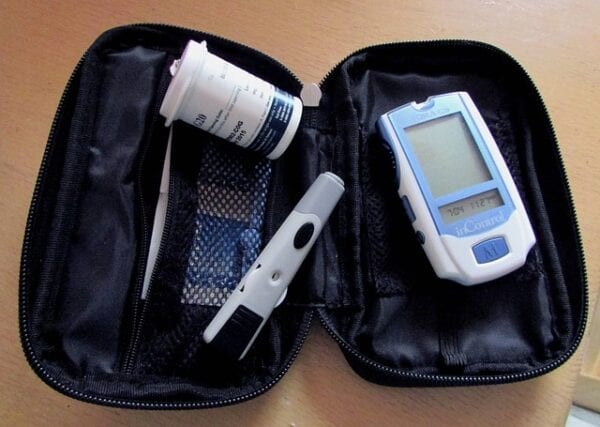You’ve likely encountered numerous patients with hyperglycemia. A challenging situation that often comes up in practice is the loss of blood sugar control from a patient who had previously been well controlled. Your first step would be to inquire about adherence. What else should you consider? I always consider looking at possible drugs that cause hyperglycemia. Here’s a few common examples of medications that can send blood sugars in an upward direction.
Corticosteroids
Hyperglycemia is a major issue that is encountered routinely with the use of systemic corticosteroids. We typically notice this issue in patients who are diabetic and are monitoring their blood sugar. Patients will see blood sugars spike which can be very frustrating if the patient doesn’t understand why they are going up. In a patient who is motivated and educated to adjust insulin on their own, we need to be extremely diligent to educate them about this potential adverse effect when taking a corticosteroid. I have seen cases where diabetes therapy has been escalated due to a short-term burst of a corticosteroid and once discontinued, patients have encountered hypoglycemia.
Antipsychotics
The next class of drugs that I will scan the medication list for are the antipsychotics. They can contribute to metabolic syndrome and hyperglycemia. While corticosteroids are often used for short-term purposes, antipsychotics are likely to be on board for a longer period of time. There may be some exceptions to that, but you can anticipate that as long as they need the antipsychotic, they may have issues with hyperglycemia that will necessitate changing the diabetes regimen. Also, recall that individual antipsychotics have higher or lower metabolic adverse effects. Clozapine and olanzapine are on the higher end for causing this adverse effect.
Calcineurin Inhibitors
Tacrolimus and cyclosporin are two medications that can be used to prevent rejection in transplant patients. While I don’t encounter a large number of transplant patients, I do remember these medications when I am reviewing the medication and diagnosis list for hyperglycemia.
Thiazide Diuretics
I recently posted about Thiazides and hyperglycemia. While there is some evidence that indicates a mild increase in blood sugars is possible, here’s the bottom line from that article: I typically don’t worry too much about the risk of thiazides and hyperglycemia, and this is especially true in patients taking low dosages of thiazides. If you have a patient taking higher dosages as the first article had, I may get a little more concerned about it. With that said, if I have a patient who reports elevated blood sugars and doesn’t have a reason as to why they have gone up, I do include thiazides in my medication-related differential.
Beta-blockers
Beta-blockers have had an association with mild elevations in blood sugars. There is also some evidence that there is less or no risk with carvedilol. Beta-blockers have fallen out of favor as an initial choice for hypertension so that makes life a little easier in worrying about this risk. We still need beta-blockers for various indications like atrial fibrillation and angina. I haven’t seen dramatic increases in blood sugars as compared to prednisone bursts, but it can be part of your differential if you are investigating drugs that cause hyperglycemia.
I think that sums it up pretty well as far as common medications that I look for that can cause hyperglycemia. Most importantly, I have found in practice that corticosteroid bursts can cause the most dramatic fluctuations in blood sugars that are perplexing to patients and providers if we don’t pay attention to the risk for adverse effects.
- 30 medication mistakes PDF
- 18+ Page Drug Interaction PDF
- 10 Commandments of Polypharmacy Webinar based on my experiences in clinical practice



0 Comments